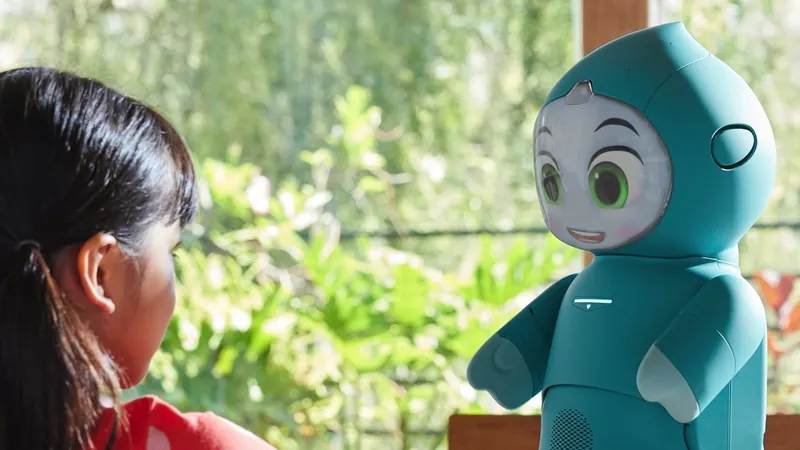
Why the Demise of Moxie the Robot Shows Apple’s On-Device AI is the Future of Technology for Autistic Children
2024-12-10
Author: Kai
In a recent turn of events, the Moxie robot, designed specifically to aid autistic children through companionship and educational interactions, has been abruptly discontinued by its creators. This shocking decision has raised concerns about the reliability of cloud-based technologies, particularly for sensitive applications such as those for children with autism.
Moxie, which relied heavily on cloud processing to utilize a large language model for its interactions, was expected to be a breakthrough in personalized education and emotional support. However, the discontinuation of the service highlights a critical flaw in its reliance on external servers – when cloud services go down or companies decide to cut off support, valuable resources designed to help vulnerable populations can vanish without warning.
This unfortunate incident serves as a powerful reminder of why Apple’s on-device artificial intelligence strategy is not only innovative but essential. Apple's approach allows data processing to occur directly on the device rather than relying on external servers. This increases privacy and accessibility for users, particularly in applications aimed at children with special needs, who often require consistent and reliable interactions to foster their learning and development.
Additionally, on-device AI ensures that parents and caregivers can rely on these tools without the fear of them abruptly disappearing or becoming unusable due to corporate decisions. It also empowers families by providing them with technology that can function seamlessly without a continuous internet connection, thereby ensuring that children can access the companionship and support they require whenever they need it.
As the tech industry continues to evolve, the lessons from the sad fate of Moxie serve as a clarion call for developers and companies to consider the implications of their technology not just as products but as vital tools for social good. The future of educational technology, especially for vulnerable populations, lies in robust, on-device solutions that prioritize user welfare over transient business strategies.
In conclusion, the demise of Moxie underlines a critical lesson: when it comes to technologies aimed at assisting those who need it most, reliability is paramount. Apple's on-device AI approach may very well be the beacon of hope that helps navigate this complex landscape, ensuring that children with autism receive the consistent support they deserve.


 Brasil (PT)
Brasil (PT)
 Canada (EN)
Canada (EN)
 Chile (ES)
Chile (ES)
 España (ES)
España (ES)
 France (FR)
France (FR)
 Hong Kong (EN)
Hong Kong (EN)
 Italia (IT)
Italia (IT)
 日本 (JA)
日本 (JA)
 Magyarország (HU)
Magyarország (HU)
 Norge (NO)
Norge (NO)
 Polska (PL)
Polska (PL)
 Schweiz (DE)
Schweiz (DE)
 Singapore (EN)
Singapore (EN)
 Sverige (SV)
Sverige (SV)
 Suomi (FI)
Suomi (FI)
 Türkiye (TR)
Türkiye (TR)